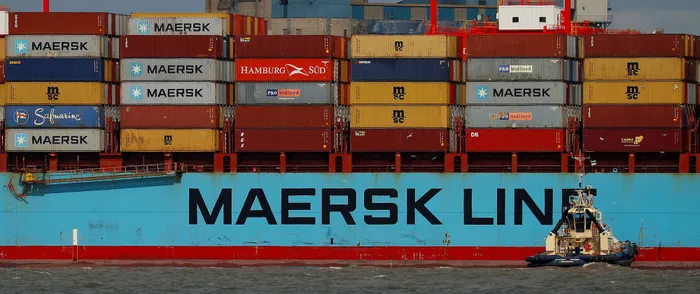
Maersk will discontinue its direct shipping service from South Africa to the US from October
Image: File
Maersk will discontinue its direct shipping service from South Africa to the US from October. which Dr Ernst van Biljon, the head Lecturer and Programme Coordinator M Com in Supply Chain Management at IMM Graduate School, said could not come at a worse time.
There is only one other shipping line, MSC, with a direct route to America.
"This decision, following the recent imposition of a sweeping 30% U.S. tariff on South African goods, delivers a double blow to our trade competitiveness and supply chain resilience," he said.
Van Biljon said the immediate concern is logistical: losing one of only two direct links to the US forces exporters to route cargo via Europe’s congested ports, adding time, cost, and uncertainty. For sectors like fruit, wine, and automotive components where freshness, timing, and delivery precision are critical — this is a serious disruption. Even if MSC maintains its direct route, the concentration risk remains high, with no room for error or backup.
He said, "But this is more than just a shipping reshuffle. It exposes South Africa’s strategic vulnerability in global supply chains. Tariffs and transport constraints now combine to erode margins and undermine long-standing commercial relationships. With the US market becoming increasingly costly and complex to access, South African exporters must urgently build alternative routes, including deepened BRICS and intra-African trade ties."
Van Biljon said this moment calls not only for political diplomacy but for a stronger coordinated national logistics strategy. The cost of inaction is not just short-term pain - it’s long-term marginalisation from global trade corridors.
Donald MacKay is founder and chief executive of XA Global Trade Advisors said the discontinuation of the Maersk route was not catastrophic as MSC still offered a route, but obviously with a monopoly on the route, prices will likely rise.
He said for less urgent cargo the delay would be less consequential, but ultimately someone will have to cover the extra working capital cost of the goods being at sea longer.
BUSINESS REPORT